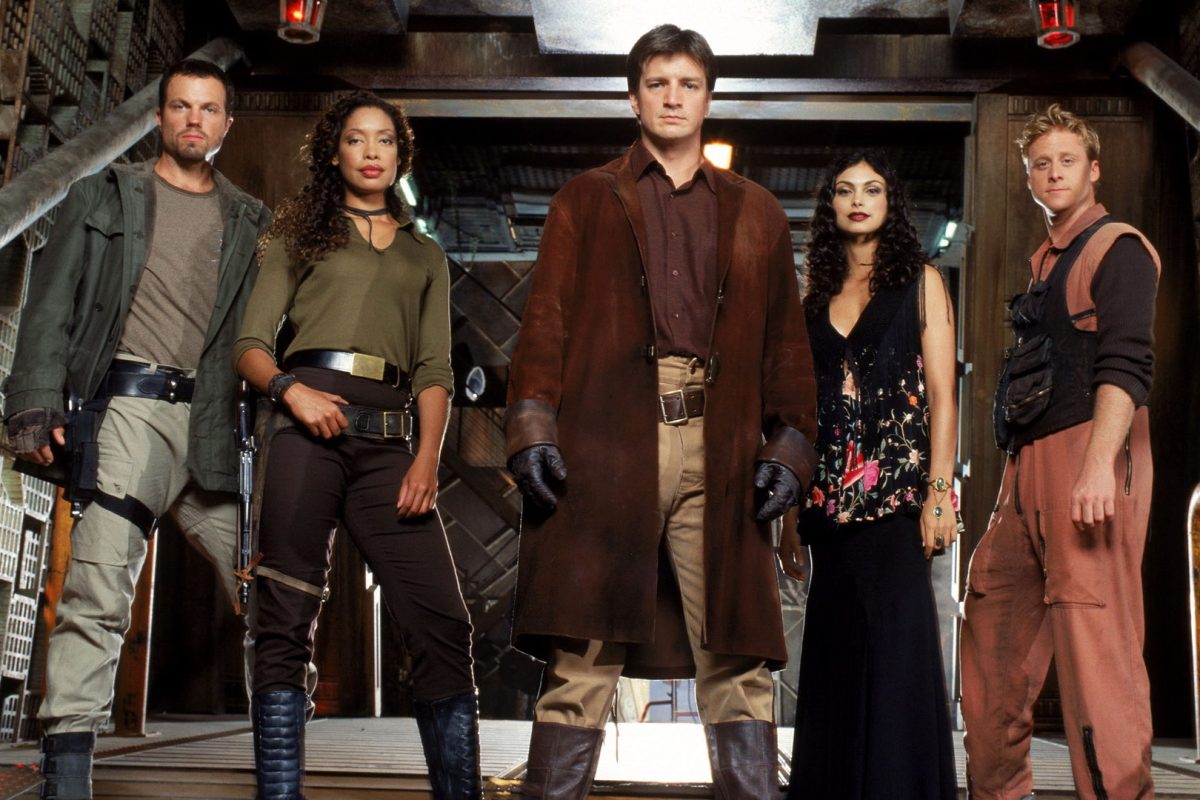On September 30, 2005, fans of science fiction were treated to the theatrical debut of a film called Serenity. Written and directed by Joss Whedon (making his debut behind the camera for the big screen), it was an oddity of a movie, and would most likely not get made today – and not just because Whedon, then an object of worship in the nerd community thanks to Buffy the Vampire Slayer, is now a pariah in Hollywood after it emerged he had a habit of verbally abuse on most of his sets.
No, the main reason Serenity would probably not be willed into existence in current times is tied to its specific production circumstances. Specifically, it’s a sequel to a TV series called Firefly, a space Western which originally aired on the Fox network in the fall of 2002. Hopes were high for the show, due to Whedon’s pedigree, but the network did very little to support it. Most crucially, the episodes aired out of order, with the following sequence on Fox: 2, 3, 6, 7, 8, 4, 5, 9, 10, 14, 1. Given the show’s serialized nature, this made the plot hard to follow, not least because the network pulled the plug with three episodes still unaired (they were broadcast in the UK the following summer).
While Whedon made an effort to keep the cast employed (lead actor Nathan Fillion, who had played captain Malcolm Reynolds, served as a guest villain on the final season of Buffy, while Gina Torres and Adam Baldwin did the same on the spin-off show Angel), the Fox corporation granted Firefly a second lease on life by releasing the complete series on DVD (with the episodes in the right order). At the time, the disc market was a lucrative one: home sales of Family Guy led to that show’s revival after a cancellation that lasted a couple of years, and James Gunn has mentioned how his cut of the DVD revenue from the live-action Scooby-Doo, which he wrote, enabled him to buy his first house.
In the case of Firefly, the ancillary market proved so fruitful that Universal, with whom Whedon had been talking about a possible film after failing to get another television network to continue the show, agreed to give Serenity the go-ahead. Budgeted at a modest $39 million, the film retained the original cast and added a handful of new faces, including a then- unknown Chiwetel Ejiofor as the Operative, who becomes a thorn in Mal’s side. Production went relatively smoothly, although the spaceship set had to be rebuilt from scratch, ironically using the DVDs as a reference, because Fox had scrapped the original after junking the show.
Once again, hopes were high, with Whedon making sure the movie could work for people who had never seen the TV series (hence the film having its own title). And while it does succeed on its own terms, the picture eventually proved too niche regardless, despite initial optimism derived from sold out word-of-mouth screenings. In the United States, it opened in second place at the box office and ended its domestic theatrical run with a far from encouraging gross of $25 million. Internationally, it added another $14 million, prompting Universal to cancel the planned theatrical rollout in several markets, where the film was released directly on DVD, somewhat in keeping with the franchise’s cult status.
The commercial disappointment was compensated by critical acclaim, from both professional reviewers and science fiction authors like Orson Scott Card, who went as far as describing Serenity as the benchmark for the then unmade adaptation of his novel Ender’s Game (that movie eventually made it to screens in 2013, and received generally tepid reviews). It also won major genre prizes like the Hugo Award for Best Dramatic Presentation – Long Form (a feat Whedon repeated seven years later with The Avengers) and the Nebula Award for Best Script.
An animated prequel was discussed, but Universal’s eventual loss of interest in the project inspired Whedon to repurpose the script in the form of a comic book miniseries, which inaugurated a whole line of Serenity titles, published by Dark Horse (which also licensed Buffy and Angel) and later by Boom Studios! until 2024. A screen revival, on the other hand, has become increasingly unlikely over the years, between the cast’s busy schedules and the creator’s status of persona non grata. Two decades on, the Serenity’s maiden voyage on the silver screen remains a fascinating, somewhat miraculous one-off.
“Serenity” is available for digital rental or purchase.
